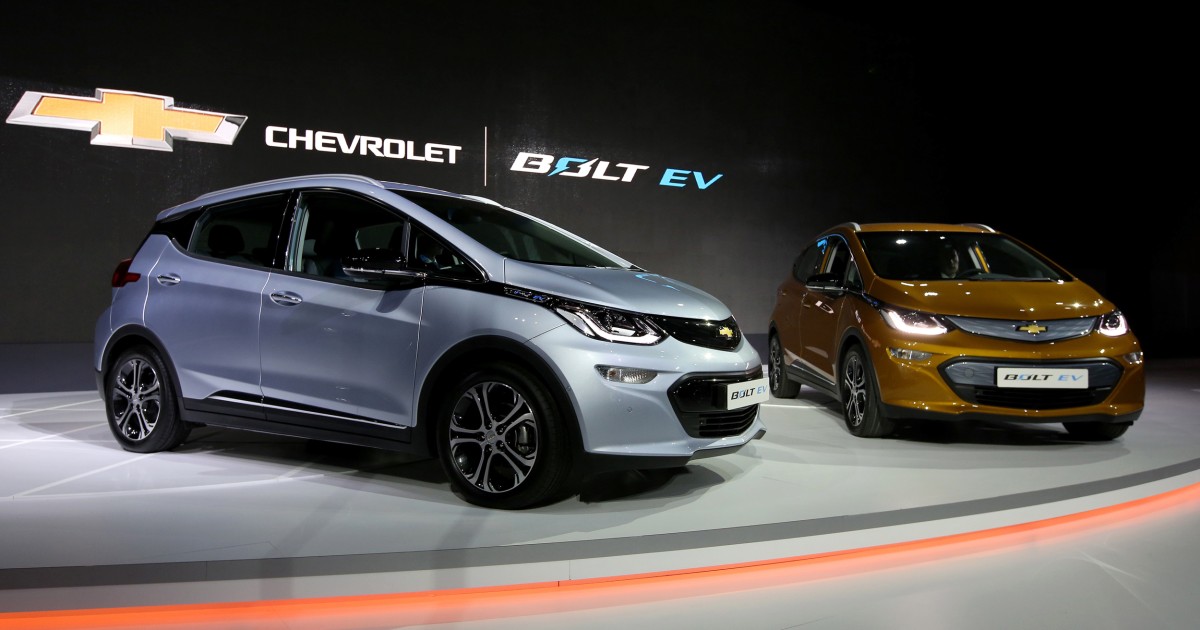
General Motors has expanded the recall of its Chevrolet Bolt electric car due to concerns about potential battery fires, adding another 73,000 vehicles, for a total of about 142,000 cars — every single one that Chevy has so far sold.
The combined cost of the recall will reach nearly $2 billion, and comes as the auto industry plans to roll out dozens of new electric models over the next 24 months to meet President Joe Biden’s goal of reaching 50 percent of total U.S. sales by 2030.
GM’s own EV lineup includes the launch of its electric Hummer pickup and an all-electric Cadillac Lyriq, which will use a completely different battery technology than that found in the Bolt. The problem appears to involve manufacturing defects that can cause their batteries to short circuit, even when parked.
“In rare circumstances, the batteries supplied to GM for these vehicles may have two manufacturing defects — a torn anode tab and folded separator — present in the same battery cell, which increases the risk of fire,” the company said in a statement.
GM initially advised owners to limit charging, but then announced it would recall 69,000 early Bolt EVs to replace the suspect packs, a move it said would cost about $800 million.
It’s not the only manufacturer that has had to deal with EV fire problems, however. Hyundai, for one, has recalled about 90,000 of its Kona EV models due to what it said earlier this year was the “increase[d] risk of a fire while parked, charging and/or driving.”
The problem with the Kona appears to have been the same as what ails GM’s Bolt models: manufacturing defects involving batteries supplied by LG Chem, one of the largest manufacturers of lithium-ion technology. The South Korean supplier’s shares took a sharp hit on Monday in the wake of the Chevy announcement.
Other manufacturers, including EV giant Tesla, have found themselves in the news due to battery fires. In one instance last December, a home in suburban San Diego was destroyed when a Tesla Model S caught fire while charging in the garage. Investigators later blamed a faulty thermal management system designed to keep the battery pack cool.
Still, the coverage of EV fires may be overblown, said Sam Abuelsamid, lead auto analyst with Guidehouse Insights. A total of seven Chevy Bolts have caught fire, or about 0.006 percent of those on the road. By comparison, the National Fire Protection Association said 212,000 gas and diesel vehicles caught fire in 2018, or about 0.07 percent of those on U.S. roads.
“Yes, we’ve seen some battery fires, but the numbers are small and they need to be put into perspective,” said Abuelsamid.
Nonetheless, industry officials privately concede they worry about the potential impact any EV fires could have at a time when the industry is investing billions on the shift to battery power. New models are reducing the concerns about range anxiety, and prices are beginning to fall, as well. Manufacturers don’t need to have fires become one more reason why motorists resist going electric.
Source: | This article originally belongs to Nbcnews.com










